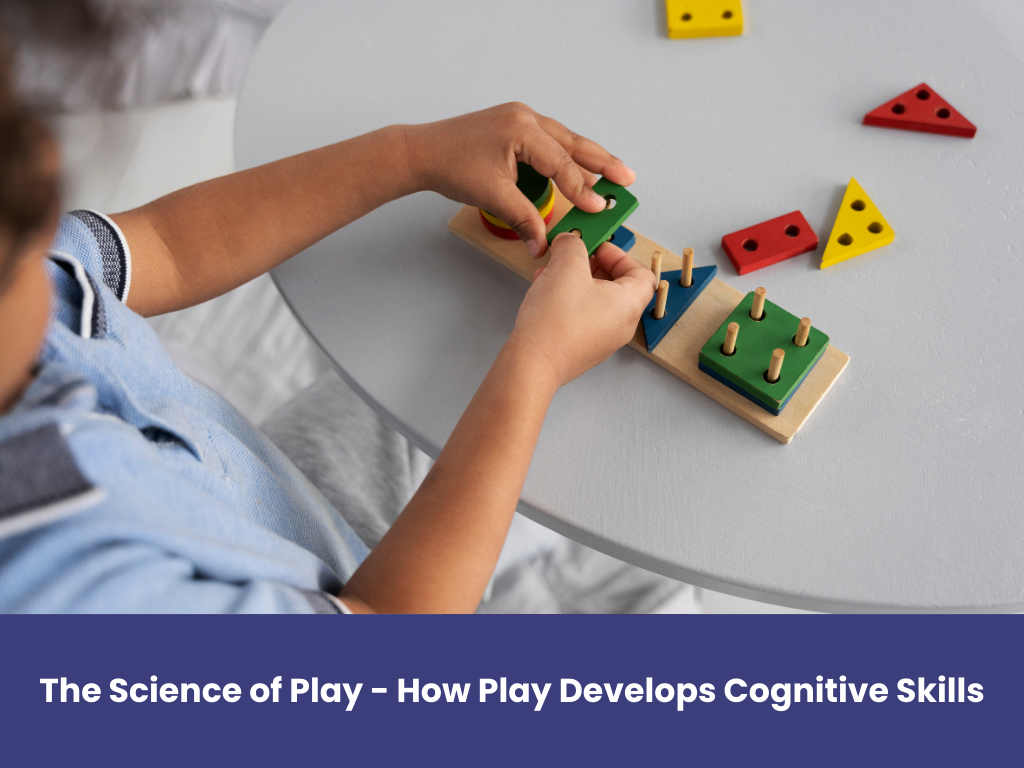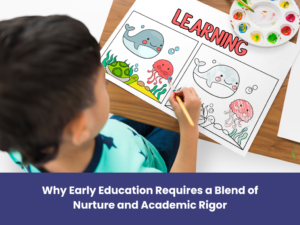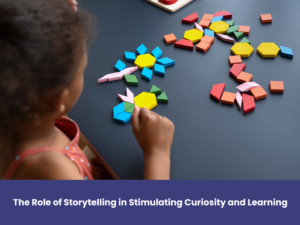In an age where education systems are highly structured and technology pervades much of daily life, the concept of play might appear outdated or simplistic. However, a substantial body of scientific research underscores the crucial role of play in child development, highlighting its profound impact on cognitive, social, and emotional growth. The Navyandhra Play School, one of the best daycare in Gurugram, exemplifies this understanding through its curriculum. This comprehensive examination explores the science behind play, demonstrating how it nurtures cognitive skills from infancy through adolescence.
The Essential Nature of Play
Play, often misunderstood as mere amusement, is actually a fundamental component of human biology and a critical element of healthy development. According to Dr. Stuart Brown, founder of the National Institute for Play, play is characterized by activities that are “purposeless, fun, and pleasurable,” primarily aimed at enjoyment and recreation rather than achieving a specific goal. This intrinsic aspect of human behavior is not just a way to pass the time; it is vital for the development of complex cognitive abilities.
Cognitive Benefits of Play
Play is a powerful tool for developing a range of cognitive skills. Each form of play, from solitary puzzle solving to social group games, contributes uniquely to mental development.
1. Enhanced Problem-Solving AbilitiesProblem-solving is a crucial skill developed through play. As children manipulate objects, engage in role-playing, or strategize in games like chess, they learn to tackle challenges and devise solutions. These activities require children to think ahead, anticipate consequences, and formulate strategies, providing a foundation for more complex problem-solving tasks later in life.
2. Language DevelopmentPlay environments are rich in opportunities for verbal exchange and can significantly enhance language acquisition. Children involved in interactive play such as storytelling, dramatic play, or dialogue with peers, expand their vocabulary and improve fluency. The dynamic nature of play facilitates conversational skills, listening abilities, and an understanding of linguistic nuances.
3. Memory EnhancementMemory skills are sharpened through games and play activities that require recall of rules, sequences, or narratives. Activities like following a complex set of instructions in a board game, remembering the steps of a dance routine, or reciting lines in a play are all cognitively demanding processes that bolster both short-term and long-term memory.
4. Improved Focus and AttentionEngaging play captures children’s attention, teaching them to concentrate on tasks for extended periods. This learned focus is critical not only for academic success but also for achieving personal goals throughout life. When children are deeply engaged in an enjoyable activity, they naturally learn to ignore distractions and maintain focus.
5. Development of Social CognitionSocial interactions during play are instrumental in developing social cognitive skills. Cooperative games, team sports, and shared creative activities help children learn about perspective-taking, emotional regulation, and social cues. Through play, children develop empathy and a better understanding of complex social dynamics.
The Evolution of Play Across Ages
The nature and benefits of play change as children grow. Each stage of development sees different types of play, each with distinct contributions to cognitive development.
- Early Childhood
In early childhood, play is predominantly physical. Young children engage in activities that involve running, jumping, and manipulating physical objects. This type of play helps develop motor skills, coordination, and spatial awareness. Simple games that involve sorting shapes or constructing towers also introduce basic concepts of physics and mathematics.
- Middle Childhood
As children enter school age, their play becomes more structured and rule-based. Games with complex rules, such as soccer or board games, teach children about strategy, fairness, and the importance of following guidelines. This form of play is critical for developing executive functions, including working memory, cognitive flexibility, and self-control.
- Adolescence
During adolescence, play often involves higher stakes and may include competitive sports, performance arts like drama and music, or digital gaming. These activities refine skills such as strategic planning, leadership, teamwork, and handling pressure. They also provide adolescents with a safe space to explore identity and personal expression.
Implications for Education
The cognitive benefits of play have significant implications for educational methodologies. Progressive education systems that embrace play-based learning often report higher levels of student engagement, improved motivation, and better overall academic performance. Integrating play into the curriculum can make learning more effective and enjoyable, helping students to internalize and apply their knowledge more effectively.
Conclusion
Play is far more than a simple leisure activity; it is a vital element in cognitive development. The science of play reveals its extensive impact on a range of cognitive skills that are crucial for both academic and personal success. The Navyandhra Play School, one of the best preschools in Gurugram, understands this and integrates play extensively into its educational approach. Recognizing and promoting the role of play can transform educational systems, foster higher levels of creativity and innovation, and support the development of a more thoughtful, resilient society. By prioritizing play, we can provide our children with the tools they need to succeed in an increasingly complex world.




